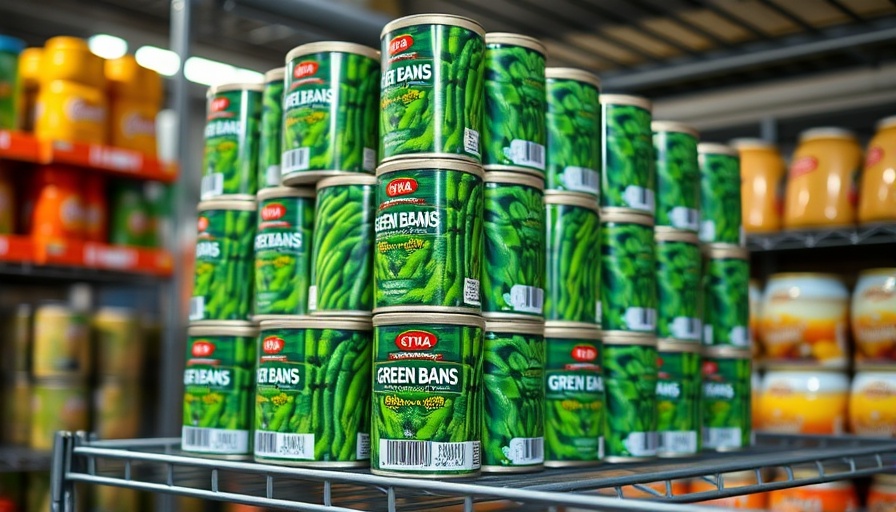
Overview of Proposed SNAP Cuts
The San Antonio Food Bank is preparing for potential changes to the Supplemental Nutrition Assistance Program (SNAP) that could drastically affect food security for many local families. A proposed House bill threatens to implement cuts of nearly $300 billion, representing the largest reduction in food aid in U.S. history. The implications of such a drastic change would reverberate throughout the country, leading to significant strain on food banks, including those in San Antonio.
Historical Context: The Evolution of SNAP
Established in 1964, SNAP was designed to provide nutritional assistance to families facing financial hardships. Over the years, the program has evolved into a vital safety net for millions across the United States. It not only helps alleviate hunger but also stimulates local economies—recipients often spend their benefits in their communities, employing local services and businesses. Significant cuts like those proposed threaten not just the health of families, but the health of the local economy as well.
Potential Local Impact on Food Banks
The San Antonio Food Bank, led by CEO Eric Cooper, is acutely aware of how these changes could affect local operations. "It could be devastating," he stated, emphasizing how a reduction in SNAP funding would compel many families to seek assistance from food banks. This situation would inevitably lead to increased demand for food provision, stretching the already limited resources of charities and non-profits further.
Statistics Highlighting the Need for SNAP
According to Feeding Texas, a network supporting food banks throughout the state, about 1 in 8 individuals in Texas rely on SNAP benefits. Removing funding could fling countless households into food insecurity, with children and the elderly disproportionately affected. Recent studies demonstrate that children who do not receive adequate nutrition lose the potential for cognitive and physical development—a long-term detriment that our society cannot afford.
Broader Implications: Food Insecurity and Health Outcomes
The ramifications of SNAP cuts extend beyond just providing food; they directly impact public health. Research shows that food insecurity is linked to a variety of adverse health outcomes including chronic diseases such as diabetes and obesity. As funding diminishes, food banks might struggle to provide nutritious options, leading to a heavier reliance on cheap, processed foods that do not support health. This pattern may ultimately contribute to elevated healthcare costs for the government and communities alike.
Community Voices: Local Perspectives and Opinions
During recent community meetings, local leaders voiced strong concerns about the impending cuts. Organizations actively involved in aiding the disenfranchised fear that families will have limited options for affordable meals. For many residents, SNAP is more than a safety net; it represents vital support in times of uncertainty, especially within communities facing the economic aftermath of the pandemic.
Counterarguments: Budget Concerns and Legislative Debate
Proponents of the cuts argue that reducing SNAP expenditures is necessary to address the federal budget deficit. However, critics point out that the social costs of increased poverty and hunger could eclipse any short-term fiscal benefits. They advocate for a balanced approach that considers both the financial landscape and the welfare of citizens. Legislative debates around these issues highlight the diverse perspectives surrounding government assistance programs.
Mobilizing Community Action: What Can Be Done?
As the crisis unfolds, community involvement becomes vital. Individuals can take action by engaging with local programs, donating food or funds, and advocating for policies that prioritize food security. Awareness and education are key components in mobilizing support, and local leaders encourage citizens to voice their concerns to lawmakers.
Conclusion: Call to Action
It is crucial for residents of San Antonio to remain informed and engaged in discussions surrounding SNAP funding and food assistance programs. As we work together to support local food banks and advocate for the needs of our community, we can help ensure that no one goes hungry in San Antonio. Stay tuned for updates and consider reaching out to local organizations to see how you can contribute to this vital cause.
 Add Element
Add Element  Add Row
Add Row 



 Add Row
Add Row  Add
Add 


Write A Comment